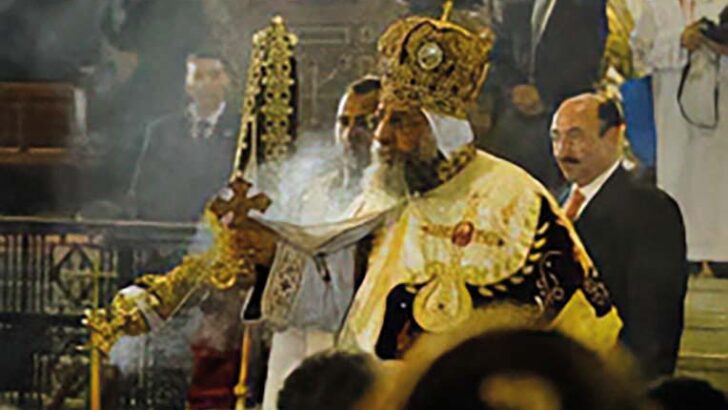This year the celebration of the Feast of the Nativity, according to the ancient Julian Calendar by the Egyptian Copts, took place last week with great ceremony. It brought into focus the cultural changes moving over contemporary Egypt where the Copts – who are miaphysites of ancient standing – now in accord with most other Christians, fear for the future of their form of the Faith not only from Islamic factions, but from secular ‘modernisers’.
Here in Ireland we hear complaints every Christmastime about the ‘commercialisation’ of the mid-winter holiday. There are times and places when one would think that the holy day was invented, not for a religious purpose, but to promote jobs in manufacturing and services industries.
There is justice in these complaints made about Christmas, and about Easter too (I read that the first Easter Eggs are already appearing in some shops) but we should think ourselves lucky compared with what is happening in Egypt.
There, the traditions of the Copts – who still embrace the date of ‘Old Christmas’ with the difference of 11 days between the Julian Calendar and the Gregorian Calendar introduced by the pope into the Catholic Church 1582 – have defined the cultural differences between Eastern and Orthodox cultures and Western and Catholic cultures.
Problem
There is another more serious problem. Back in the mid 1890s when modern tourism was only beginning, the population of Cairo as a whole was given in Cook’s Guide to the Nile at about half a million. Now it is about 27 million.
Most of these are Muslims, as the numbers of Christians of all kinds are falling. Egypt’s problems arise almost entirely from this population explosion concentrated in the capital rather than spread across the country. In 1895, the Copts numbered only 350,000 – so they too have increased, but as a marginal culture alas.
I suspect most Catholics find the Copts today very curious, but accept them as fellow Christians. But the community is currently presented with an unusual challenge in Egypt which is leading to cultural developments which may have serious consequences. The celebration of the birthday of the Prince of Peace may yet lead to renewed conflict.
This year it has become increasingly the fashion for middle class Egyptians who have wide connections with western commerce, to send cards and greetings for December 25, or in the American manner, ‘holiday greetings’.
The traditional date celebrated by the Copts is less fashionable, which may in time make the community feel isolated – as well it might. They feel not only the pressure of Islam, but also the currents of secularisation.
One senses that perhaps this movement will add further tension to the country’s social troubles. The next decade may see many modern startling changes in one of the world’s oldest continuing countries, the second oldest Christian culture of all.


 Peter Costello
Peter Costello Christian Christmas ceremonies.
Christian Christmas ceremonies. 